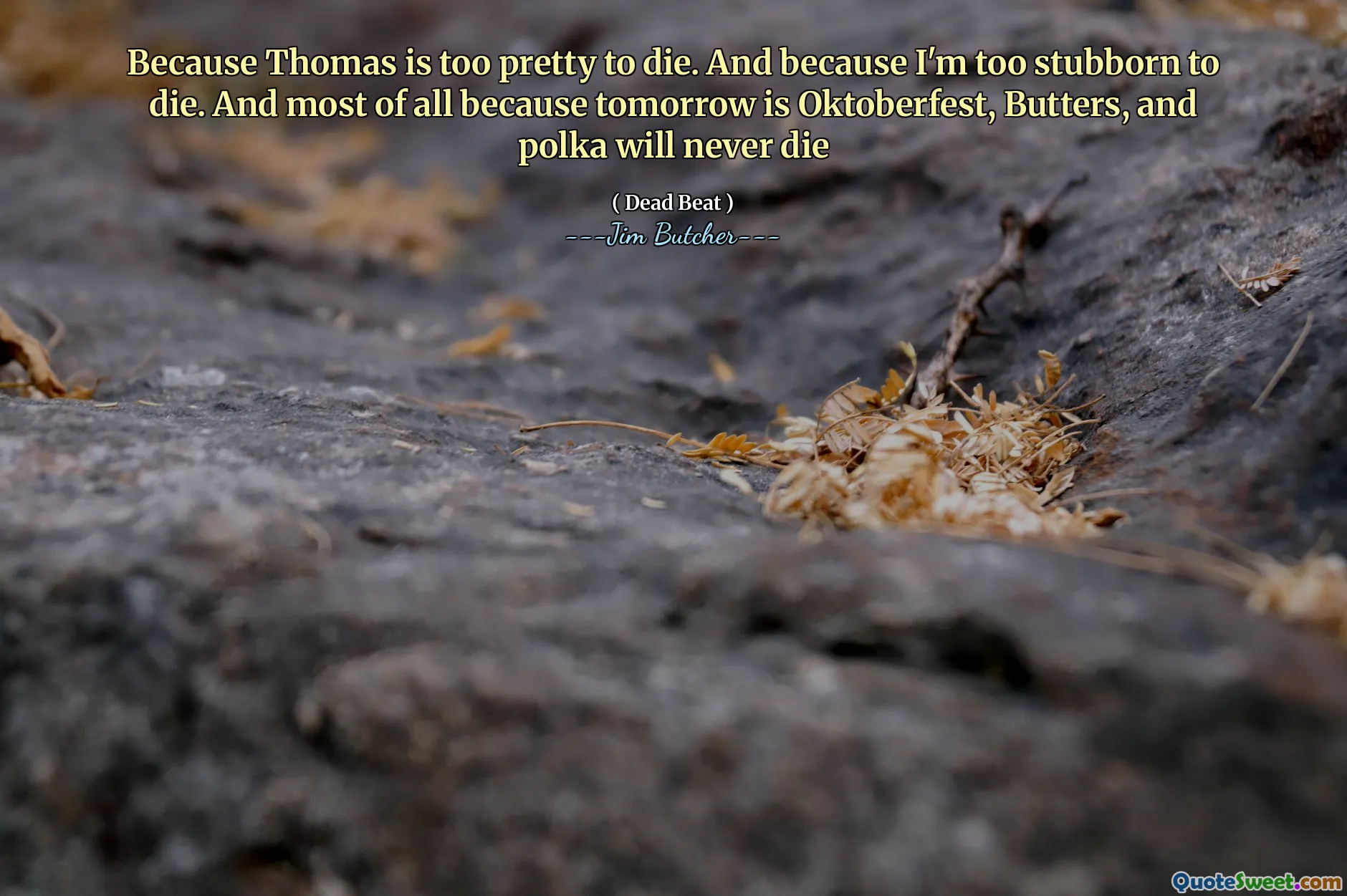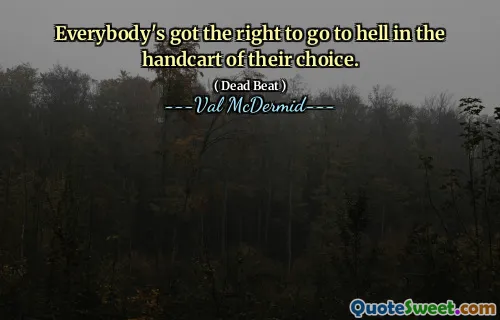
Because Thomas is too pretty to die. And because I'm too stubborn to die. And most of all because tomorrow is Oktoberfest, Butters, and polka will never die
This quote embodies a spirited defiance against the inevitability of death, emphasizing personal resilience and a celebration of cultural identity. The speaker humorously justifies their determination to survive through a blend of admiration, stubbornness, and cultural pride. Mentioning Thomas as 'too pretty to die' highlights a fondness or admiration for someone they deem valuable or beautiful, suggesting that some individuals are worth fighting for due to their qualities. The statement about being 'too stubborn to die' reveals an intrinsic stubbornness, a refusal to accept defeat or mortality, which can be both humorous and inspiring. Most poignantly, the reference to Oktoberfest, Butters, and polka elevates the cultural elements that bring joy, community, and tradition into life. These joyous pursuits serve as symbols of vitality and resilience, asserting that such cultural festivities—and the spirit they evoke—are eternal, incapable of dying even when individuals face mortal challenges. It’s a testament to how cultural icons and joyful traditions serve as anchors in the face of life's uncertainties. The quote resonates as a reminder that humor, stubbornness, and cultural pride can be powerful tools in confronting mortality, fostering a resilient spirit in adverse circumstances. Ultimately, it celebrates life through the lens of celebration and communal joy, implying that these shared experiences and cultural artifacts sustain us beyond the physical existence, keeping the essence of vitality alive.
*( Dead Beat )' — Jim Butcher








